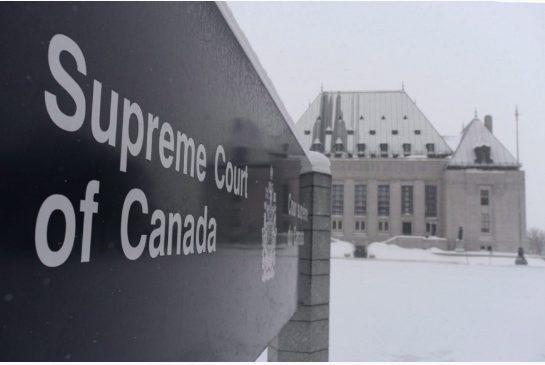
Supreme Court of Canada Sides with Jesuit School About Religion in Schools
- By Alison Lesley --
- 24 Mar 2015 --

The Supreme Court of Canada ruled to exempt Loyola High School from a law in Quebec regarding the teaching of religion in schools.
By a 4-3 margin, the Supreme Court of Canada has ruled that the providence of Quebec overstepped its authority in requiring a Montreal Catholic school to teach an Ethics and Religious Culture program. The school, Loyola High School, countered Quebec’s law by arguing it should be allowed to teach the secular-based course from a Catholic perspective.
Former Loyola principal Paul Donovan commented on the ruling, saying, “The Ethics and Religious Culture program was conceived as a way to teach students to recognize the value of others and the pursuit of the common good. These are laudable goals that we share and wish to inculcate in our students. However, we do not believe that religious values in the context of our school need to be suppressed to accomplish this.”
Parti Quebecois Nicole Leger expressed concern about the ruling of the Supreme Court of Canada. “This decision goes against the values of Quebecers and the consensus that’s been obtained in Quebec over these past years,” she reportedly said. Quebec’s new education minister, Francois Blais, said that despite the ruling, the government’s support for the secular-based Ethics and Religious Culture program is “unshakable.”
Although Quebec law requires that schools teach religions from a secular, cultural and morally neutral perspective in private schools, the Court ruled to exempt Loyola High School from the law. Writing for the majority, Justice Rosalie Abella explained the Court’s decision, “To ask a religious school’s teachers to discuss other religions and their ethical beliefs as objectively as possible does not seriously harm the values underlying religious freedom. But preventing a school like Loyola from teaching and discussing Catholicism in any part of the program from its own perspective does little to further those objectives while at the same time seriously interfering with the values underlying religious freedom.”
Justice McLachlin and Justice Moldave expressed concerns over how teaching the course in the manner Loyola High School wishes would run into practical difficulties, namely the bias with which the school would transmit the course information to students.




















